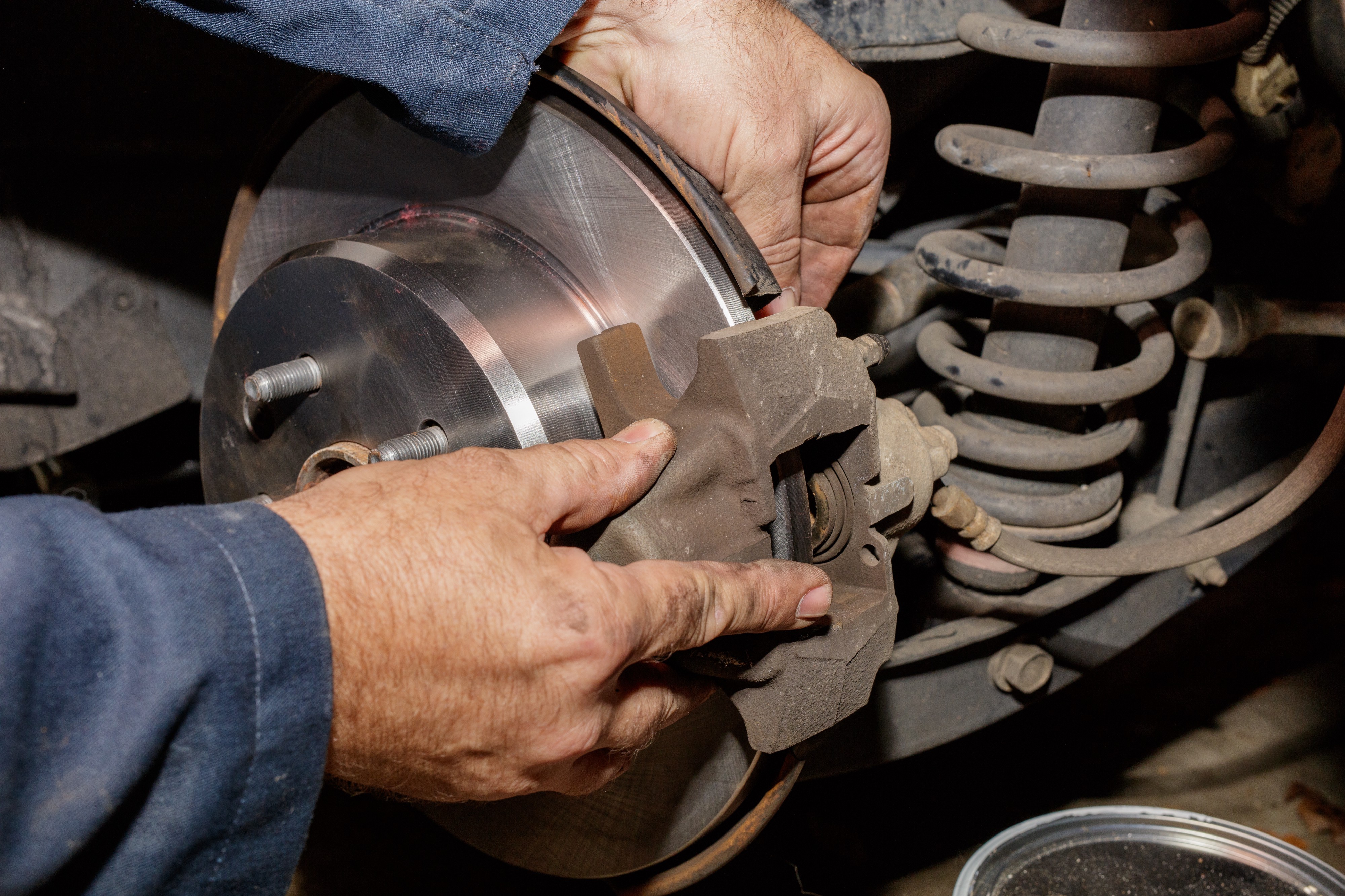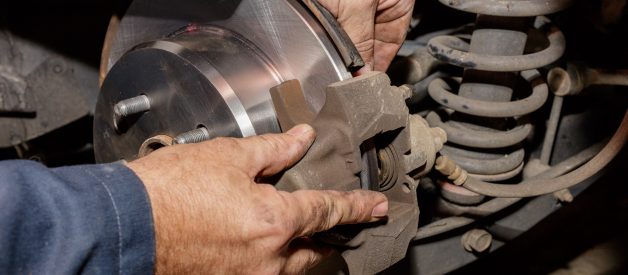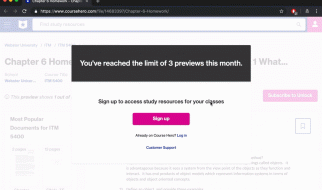By Michael Ales

Fairfax, Virginia ? Ever stop to think what makes your car, well, stop when you hit the brake pedal? It might be interesting to find out just how many drivers don?t give their brake system much thought at all. At least not until there is a problem. When the brakes start squealing (or worse, grinding), or when the car shudders every time the brakes are engaged, that?s when drivers seem to take notice.
But the brake system in your car, truck, or SUV is the most important safety feature in the vehicle. Understanding how it works, how to maintain it, how to identify problems with the system, and what to do about it are important for safe driving.
Brakes are one of the most important safety attributes on your vehicle. There are 2 types of braking systems on most cars; traditional brakes and anti-lock braking system (ABS). A typical braking system is composed of the rotor, the caliper, and brake pads or shoes.
In this article we will be focusing on the mysteries of the brake caliper.
What Is a Brake Caliper and What Does It Do?
Most cars today are equipped with either front-wheel or four-wheel disc brakes. In a disc brake system, a metal disc (the brake rotor) is attached to the wheel. When the driver steps on the brake pedal, a pair of brake pads containing friction-producing materials grab or squeeze the brake rotor and cause it to slow down and stop.
The brake caliper is a hydraulic device that suspends the brake pads around the spinning rotor. When the brake pedal is pressed, hydraulic pressure is exerted through the brake lines to the caliper. A piston (or pistons) inside the caliper presses the brake pads against the rotor. When the brake pedal is released, the caliper allows the brake pads to pull away from the rotor so the wheel can be free to move again.
What Are Signs of a Bad Brake Caliper?
Brake pads are intended to wear out with normal use. It is expected. And, of course, they can wear faster under certain conditions, like sudden aggressive stops, or a driver riding the brake pedal. But they can also wear out quickly if the brake caliper is failing. Here are some signs that one of your brake calipers is going bad:
- Vehicle pulls to one side. Is your car pulling or steering to one side or the other when you are driving? Inside the brake caliper, one or more pistons move in and out in response to hydraulic pressure from the master cylinder (pump) when you press the brake pedal. If the piston(s) in one of the front wheel brake calipers freezes up because of dirt, debris, or corrosion, the brake pads will either fail to come in contact with the rotor or they will fail to release the rotor. In the first case, the vehicle will pull away from the damaged side during braking. In the second case, the vehicle will pull toward the damaged side ? when the brakes are applied (and sometimes when they are not).
- Squealing or metallic rubbing noise. If a brake caliper is sticking or freezing up, noises may be heard from the area of the damaged part. Unlike the noises related to worn brake pads (which occur when the brake pedal is pressed), this symptom is likely to be heard when the brakes are not being used. If let go for too long, the brakes could lock up completely and prevent that wheel from turning.
- Uneven brake pad wear. If a caliper is bad, chances are that the brake pads will wear unevenly. If you notice that the brake pads have worn thinner on one side of the vehicle than the other, the caliper is likely at fault. A technician inspecting your vehicle or performing other repairs may also notice this symptom.
- Leaking brake fluid. Because a brake caliper functions as the result of hydraulic pressure, any weak spots in the system can leak hydraulic oil (brake fluid). A wet, oily spot on the ground inside the tire can be an indication of a leaky caliper.
- Clunking sound. In rare cases, a caliper bracket that holds the caliper in place could break and cause a loud clunking sound. The brakes may lock up at that wheel and significant is possible. The vehicle should not be driven if this happens.
If you notice any of these warning signs of a bad brake caliper, make sure to have a qualified technician inspect the entire brake system as soon as possible. If you let a brake problem go for too long, not only do you risk compromising an essential safety component of your car, but you might also add significant cost to your repair bill.
Hogan & Sons Tire and Auto|Author: Mike Ales|Copyright December 2017
This article is intended only as a general guidance document and relying on its material is at your sole risk. By using this general guidance document, you agree to defend, indemnify and hold harmless Hogan & Sons Tire and Auto and its affiliates from and against any and all claims, damages, costs and expenses, including attorneys? fees, arising from or related to your use of this guidance document. To the extent fully permissible under applicable law, Hogan & Sons Tire and Auto makes no representations or warranties of any kind, express or implied, as to the information, content, or materials included in this document. This reservation of rights is intended to be only as broad and inclusive as is permitted by the laws of your State of residence.


